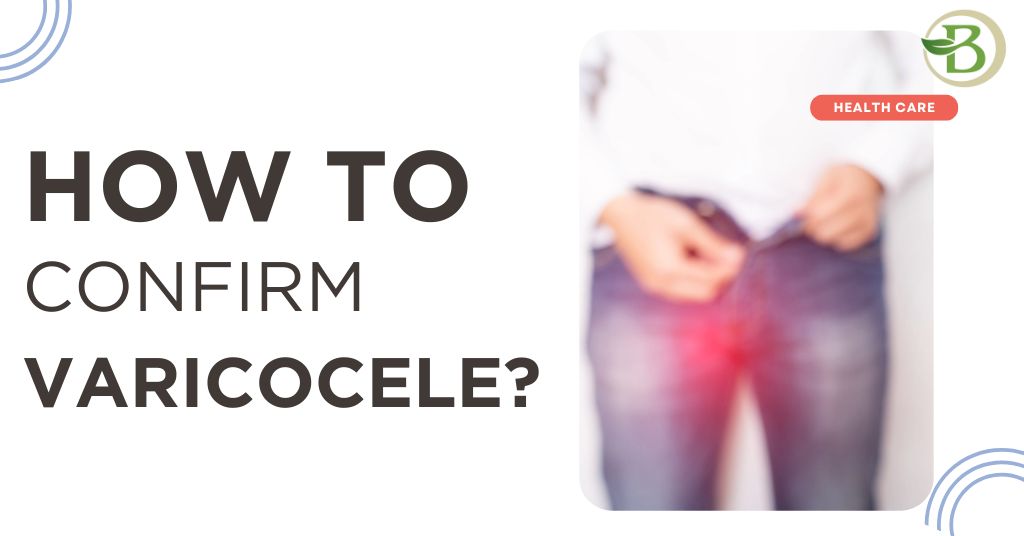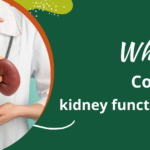Varicocele: a prominent condition affecting Men
Varicocele is a prevalent condition affecting males, characterised by the enlargement of veins within the scrotum. While often harmless, varicoceles can lead to discomfort and fertility issues in some cases. Understanding symptoms and early diagnosis of varicocele is crucial for effective management of the medical condition for affected individuals.
When it comes to reproductive health, the topic of male reproductive wellness remains relatively unexplored. Men are often hesitant to openly talk about their sexual health with others, including their partners and healthcare providers. Bringing up and recognising issues like varicocele is also viewed as embarrassing for the majority of men.
However, it’s surprising to know that around 15 percent of men around the globe have varicocele. Usually, a varicocele doesn’t cause any noticeable symptoms, but it can become more apparent as time passes. Once a varicocele grows to a certain point, men might start to feel some discomfort.
What are the Symptoms of Varicocele?
The majority of men diagnosed with a varicocele experience no signs or symptoms. Nonetheless, varicoceles demands attention due to several factors. They could lead to difficulties in conceiving (challenges in fathering a child) and a reduced testicle size on the left side during adolescence. In approximately 40% of men facing infertility issues, varicoceles could be a contributing factor. Similarly, in about 80% of men struggling with infertility after their initial child, varicoceles might play a role. Typically, if you notice any symptoms of varicocele, they will likely fall into one of these groups:
1. The appearance and sensation of your scrotum
2. Discomfort in the scrotum due to your varicocele
3. Health issues related to systemic problems like male infertility and decreased testosterone levels
Let’s explore the top five signs of a varicocele by starting with what you might observe regarding the appearance and sensation of your scrotum.
1. Mild Pain or discomfort
2. Swelling or lump that can be seen in the scrotum
3. Aches or pulsing in the scrotum
4. Infertility related issues
5. Reduced levels of testosterone
Diagnosing Varicocele through Medical examination
It’s important to get varicocele treatment if you are experiencing any of the symptoms mentioned above or if you are concerned about the possible causes of infertility. Consulting a doctor will help determine whether you have a varicocele and its severity so that you receive the most suitable treatment procedures based on your individual requirements.
The process of diagnosing a varicocele includes a physical examination, an assessment of your medical background, and an evaluation of your symptoms. In the physical examination, your physician might check your scrotum.
1. Physical Check-up
Since a varicocele might not always be visible, a check-up of your testicles in both standing and lying positions could be necessary. If the physical examination fails to identify the enlarged veins, the doctor might need to conduct a scrotal ultrasound to obtain a clearer view of the scrotum’s interior.
Scrotal Ultrasound
An ultrasound inhibits high-frequency sound waves to generate images within the body. Given that the scrotum is situated outside the body, this method is particularly effective. What does the ultrasound examine? The procedure involves a technique known as “Valsalva.” It looks for varicoceles by identifying veins that are more than 3 millimetres wide and observes the direction of blood flow during the Valsalva maneuver. Additionally, the ultrasound can reveal the dimensions of the testicles, which is helpful in determining the appropriate treatment for the condition. An ultrasound is not required if issues are detected during the physical examination.
CT Scan
A CT scan utilises X-rays to examine the body’s internal structures, offering a detailed view of anatomy. It is also used to identify any other conditions within the abdomen that could obstruct the flow of the testicular vein. Furthermore, a CT scan is conducted to precisely measure the size of the testicular veins. However, varicocele is mostly detected with a physical check-up or ultrasound; we rarely need to perform a CT scan.
However, many men diagnosed with varicocele are often confused about whether a clinical treatment is necessary for varicocele or not. Considering the fact that varicocele prominently affects the young male population, not taking proper steps towards the condition at an early stage will lead to the worsening of the condition. This will subsequently lead to fertility issues in the future. Now, it may not be clear to many people that exactly how varicocele affects fertility. In the further sections, we will be discussing the same and also mentioning about treatment options for varicocele.
Impaired Male Fertility due to Varicocele
Varicoceles is the leading reversible cause of male infertility. This condition affects fertility through a variety of mechanisms:
1. Testicular Overheating: The abnormal swelling of veins in the scrotum disrupts blood flow and raises testicular temperature. Increased scrotal temperature negatively impacts sperm production and quality, resulting in decreased sperm concentration, motility, and morphology.
Oxidative Stress: Varicoceles contribute to the buildup of reactive oxygen species (ROS) in testicular tissue. ROS-induced oxidative stress harms sperm DNA, impairs sperm function, and lowers sperm viability.
3. Hormonal Imbalance: Varicoceles disrupts the usual hormonal balance in the testes by elevating the levels of metabolites from the adrenal and testicular veins, for example, cortisol and prolactin. These imbalances in hormones additionally affect the production and quality of sperm.
So, by now, we are aware of the fact that untreated varicoceles can pose serious risks to male fertility and overall health. It is important to diagnose them promptly and provide the right treatment to reduce these risks. Men who have symptoms like scrotal pain, testicular atrophy, or infertility should consult a doctor and explore suitable treatment choices.
Treatment options for Varicocele
It can be overwhelming when you’re unsure about what’s wrong with you. You just know that you’re feeling discomfort, and something doesn’t seem right. Perhaps you and your partner are struggling with fertility issues, and her medical tests show that she is fertile.
Maybe a trip to a urologist has relieved your concerns after an ultrasound revealed to you that your medical condition is entirely curable. However, if you’ve recently been diagnosed with varicocele, you probably have questions about your options for treating varicocele-related infertility. Fortunately, Homeopathic medicine now offers several treatment options for varicocele treatment without surgery.
Non Invasive Options for Varicocele
The homeopathic treatment for varicocele has demonstrated promising results as an alternative treatment option. Homeopathic remedies, derived from natural sources, have shown effectiveness in managing varicocele, and in many cases, have been successful in alleviating the need for surgical intervention.
These remedies work by addressing scrotal swelling, reducing venous stasis, and improving blood circulation. Additionally, they have been found to be beneficial for managing associated pain. Homeopathic treatment can also be effective in cases of varicocele accompanied by a low sperm count, although the outcomes may vary depending on the severity of the varicocele and the duration of the condition.
Why Choose Bharat Homeopathy?
At Bharat Homeopathy, our experienced homeopathic doctors provide personalised treatment for varicocele based on individual symptoms and characteristics. Our goal is to alleviate pain, reduce swelling, and minimise discomfort, which in turn lowers the temperature of the testicles and improves sperm count.
Our varicocele natural treatment targets the underlying causes to prevent the reoccurrence of the condition and stimulates the body’s natural defence mechanisms against the disease. As the body’s healing system strengthens, the condition is completely cured.


